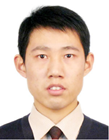June 26-28, 2023 · Kyoto, Japan
IEEE International Conference on Metaverse Computing, Networking and Applications (MetaCom 2023)
June 26-28, 2023 · Kyoto, Japan.
https://www.ieee-metacom.org/2023/Tutorial I:
Title: An Introduction to Blockchain as a Database and WEB3.0

Instructor: Prof. Abdullah Uz Tansel
City University of New York, USA
Abstract
Blockchain is a foundational innovation in database technology for keeping temper proof (trusted) data in a permanent, immutable, decentralized, global, and trustless ledger. It is a relatively new field that combines distributed computing, databases, networks, cryptography, and economics, and is rapidly evolving. It allows people, organizations, and machines to digitize their current relationships as well as forming new secure digital ones since data is disclosed, secured and recorded differently in a blockchain database system. Moreover, a paradigm shift, WEB3.0 is taking place where individuals, organizations and machines are being empowered in a strong system of digital identity and trust in sharing their data and their interactions. Moreover, countless number of IoT devices, with fast and secure communication requirements, are vital for sensing their environments and securely sharing their data. Naturally, communication networks and 5G communications are significant enablers of the blockchains. The tutorial covers the blockchains as a database and its fundamentals, and its evolution to WEB3.0.
Biography
Abdullah Uz Tansel received his BS in management, and his MS and PhD degrees in computer science from the Middle East Technical University, in Ankara Turkey. He has also received his degree at the University of Southern California. After being a faculty member at the Middle East Technical University, Dr. Tansel joined Baruch College, the City University of New York (CUNY) where he is currently a professor of information systems and a professor of computer science at The Graduate Center of CUNY. Professor Tansel’s research focus is on temporal databases, and he has made significant contributions in this field. He also headed the editorial board that published the first book on temporal databases ‘Temporal Databases: Theory, Design, and Implementation’ (1993). Dr. Tansel has a patent on adding temporality to RDF. His research interests are Database Management Systems, Temporal Databases, Semantic Web, and Blockchain Databases. Dr. Tansel has published many articles in the conferences and journals of the ACM, IEEE and other associations. He is a frequent speaker on time in databases and blockchain as a database. He is also a member of the ACM and the IEEE Computer Society.
Tutorial II:
Title: The Network Infrastructure of the Metaverse: Challenges, Potential Solutions, and Research Directions

Instructors: Prof. Roch H. Glitho
Concordia University, Canada
Abstract
The concept of Metaverse is getting more and more popular. However, a myriad of challenges needs to be tackled before it becomes a reality. The current network infrastructure for instance cannot fully meet the requirements imposed by applications. This tutorial focuses on the network infrastructure of the Metaverse. It introduces the challenges, discusses the potential solutions, and sketches the research directions. A plethora of applications with disparate characteristics is foreseen for the Metaverse. A very first challenge for the network infrastructure is to meet the requirements of all these applications in a cost -efficient manner. A potential solution is slicing, a technology that enables isolated virtual networks with different characteristics on top of a same physical network. It also happens that some of the applications have very stringent requirements such as ultra-high bandwidth and ultra-low latency. Holographic streaming applications for instance may require gigabits and even terabits per second, while Tactile Internet application may require latency in terms of single digit milliseconds round trip. Edge computing that stipulates computation at edge of the network (instead the cloud) is a potential solution to these very stringent requirements. Yet another emerging potential solution is In-Network-Computing (INC). It stipulates computing inside the network, instead of computing on servers outside the network. In the first part of this tutorial we introduce the metaverse, discuss use cases, and pinpoint the requirements on the network infrastructure. The second part introduces slicing and its applicability to the Metaverse network infrastructure, while the third part is devoted to edge computing and INC as potential solutions to the bandwidth and latency challenges faced by the same infrastructure. The fourth part is devoted to the research directions. It discusses architectural and algorithmic directions. We end with a summary and the perspectives.
Biography
Roch H. Glitho holds a Ph.D. in tele-informatics (Royal Institute of Technology, Stockholm, Sweden), and M.Sc. degrees in business economics (University of Grenoble, France), pure mathematics (University of Geneva, Switzerland), and computer science (University of Geneva). He is Full Professor of Networking and Telecommunications at Concordia University, the Ericsson/ENCQOR-5G Senior Industrial Research Chair in Cloud and Edge Computing for 5G and Beyond, and a former Canada Research Chair. He has joined academia in 2010 after an industrial career with LM Ericsson in Sweden and Canada. During his industrial career, he has held several senior technical positions (e.g. Expert, Principal Engineer, Senior Specialist). He is a former Editor-In-Chief of IEEE Communications Magazine and IEEE Communications Surveys and Tutorials journal. He is also a former IEEE Communications Society distinguished lecturer.
Tutorial III:
Point cloud video streaming: viewport prediction, semantic tiling and transmission optimization

Instructor: Prof. Zhi Liu
The University of Electro-Communications, Japan
Abstract
Point cloud video can play a crucial role in the development of the metaverse, which is a virtual shared space that allows users to interact with each other and with digital objects in a seamless and immersive way. For example, point cloud video technology enables the capture and representation of 3D spatial data, which can be used to create highly realistic and interactive virtual environments. By capturing and processing real-world data, point cloud video can create detailed and accurate representations of physical spaces, objects, and people. The streaming of point cloud videos further facilitates its application in metaverse and many other applications. However, it poses significant challenges due to its distinctive characteristics such as high volume, low latency, and high encoding/decoding complexity.
This talk is a tutorial on point cloud video streaming, which enables a six-degree-of-freedom (6DoF) immersive viewing experience with a wide range of applications in entertainment and education, etc. We will present the technical challenges and possible solutions for volumetric video streaming.
Biography
Zhi Liu received his Ph.D. degree in Informatics in National Institute of Informatics, Japan. He is currently an associate professor with tenure at The University of Electro-Communications, Japan. His research interest is mainly on video streaming, energy efficient edge computing and wireless networks. He has published more than 60 IEEE/ACM journal papers and received six best paper. He is serving or has served as an Editor for IEEE Systems Journal, IEEE Open Journal of the Computer Society, Springer Wireless Networks. He is the recipient of IEEE ComSoc Multimedia Communications Technical Committee (MMTC) Outstanding Young Researcher Award. He is a senior member of IEEE.
News
-
Aug 31, 2022
Web site is up.
-
Aug 31, 2022
Call for Papers published.
Important Days
-
Dec 30, 2022Paper Submission Due -
Jan 18, 2023Paper Submission Due (extended) -
Feb 6, 2023Paper Submission Due (Firm) -
Mar 15, 2023Author Notification -
May 10, 2023
Camera-Ready Due
-
Jun 26-28, 2023
Conference Date
Copyright © 2023 IEEE International Conference on Metaverse Computing, Networking and Applications


